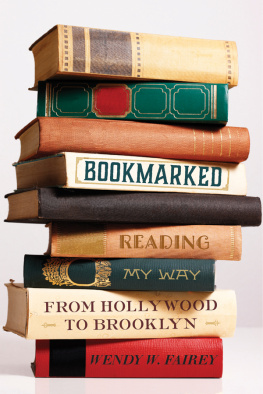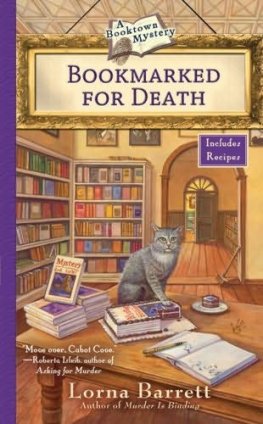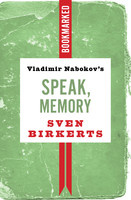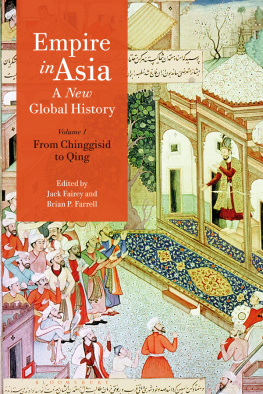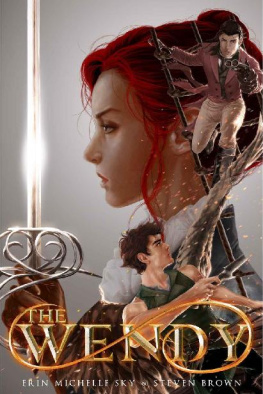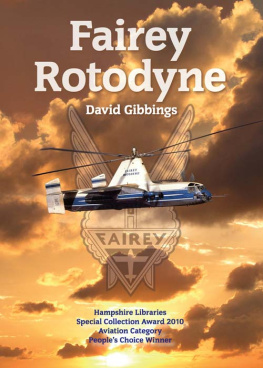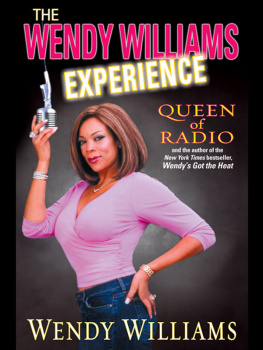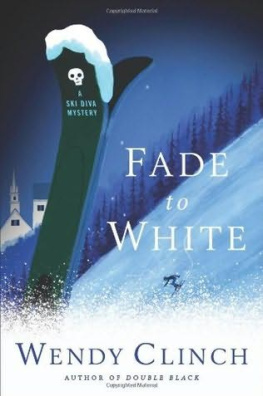Wendy W. Fairey - Bookmarked: Reading My Way from Hollywood to Brooklyn
Here you can read online Wendy W. Fairey - Bookmarked: Reading My Way from Hollywood to Brooklyn full text of the book (entire story) in english for free. Download pdf and epub, get meaning, cover and reviews about this ebook. year: 2015, publisher: Arcade, genre: Non-fiction. Description of the work, (preface) as well as reviews are available. Best literature library LitArk.com created for fans of good reading and offers a wide selection of genres:
Romance novel
Science fiction
Adventure
Detective
Science
History
Home and family
Prose
Art
Politics
Computer
Non-fiction
Religion
Business
Children
Humor
Choose a favorite category and find really read worthwhile books. Enjoy immersion in the world of imagination, feel the emotions of the characters or learn something new for yourself, make an fascinating discovery.
- Book:Bookmarked: Reading My Way from Hollywood to Brooklyn
- Author:
- Publisher:Arcade
- Genre:
- Year:2015
- Rating:3 / 5
- Favourites:Add to favourites
- Your mark:
- 60
- 1
- 2
- 3
- 4
- 5
Bookmarked: Reading My Way from Hollywood to Brooklyn: summary, description and annotation
We offer to read an annotation, description, summary or preface (depends on what the author of the book "Bookmarked: Reading My Way from Hollywood to Brooklyn" wrote himself). If you haven't found the necessary information about the book — write in the comments, we will try to find it.
Bookmarked: Reading My Way from Hollywood to Brooklyn — read online for free the complete book (whole text) full work
Below is the text of the book, divided by pages. System saving the place of the last page read, allows you to conveniently read the book "Bookmarked: Reading My Way from Hollywood to Brooklyn" online for free, without having to search again every time where you left off. Put a bookmark, and you can go to the page where you finished reading at any time.
Font size:
Interval:
Bookmark:


Copyright 2015 by Wendy W. Fairey
All rights reserved. No part of this book may be reproduced in any manner without the express written consent of the publisher, except in the case of brief excerpts in critical reviews or articles. All inquiries should be addressed to Arcade Publishing, 307 West 36th Street, 11th Floor, New York, NY 10018.
Arcade Publishing books may be purchased in bulk at special discounts for sales promotion, corporate gifts, fund-raising, or educational purposes. Special editions can also be created to specifications. For details, contact the Special Sales Department, Arcade Publishing, 307 West 36th Street, 11th Floor, New York, NY 10018 or .
Arcade Publishing is a registered trademark of Skyhorse Publishing, Inc., a Delaware corporation.
Visit our website at www.arcadepub.com.
10 9 8 7 6 5 4 3 2 1
Library of Congress Cataloging-in-Publication Data
Fairey, Wendy W.
Bookmarked : reading my way from Hollywood to Brooklyn / Wendy W. Fairey.
pages cm
ISBN 978-1-62872-537-7 (hardback)
1. English fiction--19th century--History and criticism. 2. English fiction20th centuryHistory and criticism. 3. Fairey, Wendy W. 4. Books and readingPsychological aspects. 5. Fictitious charactersPsychological aspects. 6. Fellowship. 7. Inspiration. 8. Self-actualization (Psychology) 9. English teachersUnited StatesBiography. 10. College teachersUnited StatesBiography. I. Title.
PR861.F24 2015
823.809--dc23
2014041618
Jacket design by Lynne Yeamans
Cover photo: Thinkstock
Ebook ISBN: 978-1-62872-553-7
Printed in the United States of America
For Mary Edith
Contents
From Orphan to Immigrant
W henever I teach The Great Gatsby , as I have so many times in my forty years in the college classroom, I always wonder if I will tell the students my story. Its my mothers story, really. But its mine, too, the story of a personal link to the books author that tinges every professional comment I make about themes and narrative voice and structure and the other facets of fiction that English professors train their students to look for. I care about all these, to be sure, but I have an intensely private as well as professional understanding of the novel at hand. Or rather, the private and professional strands are so intertwined that I cant really say where one ends and the other begins. In class I present them as separate. I tell the personal story when Ive proven to myself that I dont have to, when I feel we have satisfactorily covered the material, as we call it, with professorial dispassion and dispatch. Perhaps the revelation comes in an impulsive moment of warmth for the group of young people before meI want to be closer to them, to give them something they might find special. Or perhaps theres been a little sag in classroom energy and I turn to the story to reinvigorate us.
Heres a personal connection that may interest you. My mother actually knew F. Scott Fitzgerald. It was in the last years of his life in Hollywood.
I see mild interest in their faces.
She was involved with him, I say. A variant of this, if the group seems more sophisticated, perhaps a class of graduate students, might be: She was his lover.
Interest at this point increases, usually mixed with a bit of understandable anxiety that an aging female professor, talking about her mothers lover, has become unpredictable.
Yes, they were together for three-and-a-half years. He died in her living roomstood up and dropped dead of a heart attack. A few days before Christmas 1940.
Now Ive made it vivid.
But what interests me the most, I say, is that he devised for her an education. The F. Scott Fitzgerald College of One. It was an entire college curriculumwith history and art and music, and even a little economics. But above all poetry and the novel. Dickens. Thackeray. Henry James. We had the books from the College of One in our library when I was a child. Those were the books I read growing up.
My private relation to F. Scott Fitzgerald is that he bought the books for my mother that I have loved all my life, the books, its fair to say, that turned me into a professor of English literature. I loved the volumes in the College of One inside and outtheir bindings, their pages, their print, their storiesand I lived in them more fully than I can remember living in the world around me. Thus, my F. Scott Fitzgerald story is less that he was my mothers lover before I was born, dying dramatically in her living room, releasing her to go forth and be with other men and become my mother, than that he shaped my lifes reading by having bought her those books. Long before I even knew of her connection to him, they lined the shelves along opposite walls of our den, there for me to take down and carry upstairs to my bedroom and immerse myself in stories that transported me to other times and places. The palm trees and eucalyptus of dusky Southern California gave way to the imagined bustle of Thackerays London or the green landscape of David Copperfields Suffolk downs. And as soon as I finished one book, perhaps Tom Jones or Bleak House , I would ask my mother to recommend another, thus building the shadow world that I would live in, have lived in all my life.
So reading and teaching The Great Gatsb y entails for me, always, not only the themes of the great American novel with its tragic dreamer hero, believing in the wrong dreams, but also the subtext of my mothers relationship with Fitzgerald, my mother herself looming as a kind of female Gatsby, a woman who emerged from a Jewish orphanage and made herself up as Sheilah Graham, London chorus girl and Hollywood columnist, suppressing her Jewishness and her early poverty, believing anything was possible, and awesome in the energy of her self-creation, to which she proved faithful to the end. And I understand Gatsby as myself, someone who has wed her dreams to people, starting with my mother, whom I wanted to believe in as golden and magic. But I am Nick Carraway as well, awed by Gatsby but able to judge him; the level-headed spectator, who ultimately turns away from a gaudy world to seek something else, a more solid if more ordinary existence. And I link, too, with Fitzgerald in our shared love for my mother. And with him as a pedagogue devising his syllabi for the F. Scott Fitzgerald College of One, joining with me in our imagined shared love of Victorian novels. Everything is all mixed together.
I want to write of the private stories that lie behind our reading of books, taking my own trajectory through English literature as the history I know best but proposing a way of thinking about literature that I believe is every readers process. We bring ourselves with all our aspirations and wounds, affinities and aversions, insights and confusions to the books we read, and our experience shapes our responses. I have begun by citing my relation to The Great Gatsby , but the story of reading David Copperfield or Vanity Fair or To the Lighthouse or any of the books discussed in this volume is just as dramatically personal. Young David has an evil stepfather, as did I, and I share in Davids fear and loathing of this figure. The lan of Becky Sharp reminds me of my mother, and I cant help admiring Thackerays witty, resourceful rogue. The yearning of Woolfs grief-suffused Lily Briscoe for the dead Mrs. Ramsay touches the chord of all the important losses of my life. Of course, reading is more complicated than this finding of biographical parallels. We also read, as one of my students has so well put it, to escape the relentless monotony of being ourselves as well as to return from the experience with a slightly different mind than we had going in. All that is true, and much else besides, a subtle and magical interaction between the reader and the book that I hope to illuminate.
Font size:
Interval:
Bookmark:
Similar books «Bookmarked: Reading My Way from Hollywood to Brooklyn»
Look at similar books to Bookmarked: Reading My Way from Hollywood to Brooklyn. We have selected literature similar in name and meaning in the hope of providing readers with more options to find new, interesting, not yet read works.
Discussion, reviews of the book Bookmarked: Reading My Way from Hollywood to Brooklyn and just readers' own opinions. Leave your comments, write what you think about the work, its meaning or the main characters. Specify what exactly you liked and what you didn't like, and why you think so.

